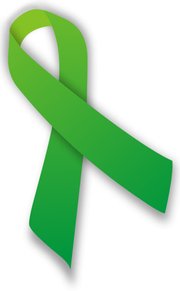Many people have been affected by a loved one or friend who has had a traumatic brain injury, a stroke or a concussion.
According to MedStar National Rehabilitation Network, one and a half million traumatic brain injuries, concussions and nearly a million strokes occur every year in the United States.
A few years ago, Sara and Mark Reges’ 9-year-old son Charles became one of these statistics when he was hit by a car in Potomac Village. He suffered a traumatic brain injury and was airlifted to Children’s National Medical Center where he was on life support for weeks. He was in critical care and partially paralyzed for months following the accident — but today, he is a normal 13 year old with no side effects. Through the care of the Children’s National Medical Center and the National Rehabilitation Hospital, Charles made a full recovery.
Now the Reges family is on a mission to make the public more aware of the causes and symptoms of brain injuries. The proprietors of Potomac’s Old Angler’s Inn will partner with other local and regional restaurants during the month of March to raise awareness as well as funds for a National Center for Brain Injury and Stoke Rehabilitation and Research. This center will include comprehensive clinical care as well as a neurological clinical and translational research program. Additionally, it will house a 40 bed state-of-the- art patient care unit with environmentally and sensory-controlled private patient rooms.
“We are not asking the restaurants for a donation, but instead just requesting that they deliver an envelope with information that “March is Brain Injury Awareness Month” with each customer’s bill. We are hoping that our community will realize the difference that this initiative will make in people’s lives and that we spark and interest in making a donation. This community of restaurants and patrons can truly make a difference,” Sara Reges said.
“We need more facilities and more research. Currently we can only have 30 semi-private rooms at NRH. The new Center will nearly double our size and provide the innovative technology needed to advance patient recovery. The difficulties faced by our servicemen and women have brought the problems of traumatic brain injury to the forefront. We have made great strides in technology and research, but still have a long way to go, particularly in the area of public awareness. The MedStar NRH is committed to serving the growing and complex needs of our brain injured friends, family and neighbors.”
Reges is also working with school safety officers and administrators to help them understand that the earlier a brain injury is detected, the more likely recovery in possible. She discovered that Montgomery County does not require a certified athletic trainer to be on the side of the field in high contact sports.
“Having a certified athletic trainer on the field can make all the difference in the world. He or she can spot a blow to the head and can realize right away if a concussion or brain injury has occurred,” said Reges. “We are working to encourage the schools to fund this position for sports such as football, baseball, soccer, wrestling, lacrosse and basketball.”
To make a donation to the MedStar National Rehabilitation Network, visit www.nrhrehab.org — or look for the donation envelope the next time dining at a Potomac or regional restaurant in March.

